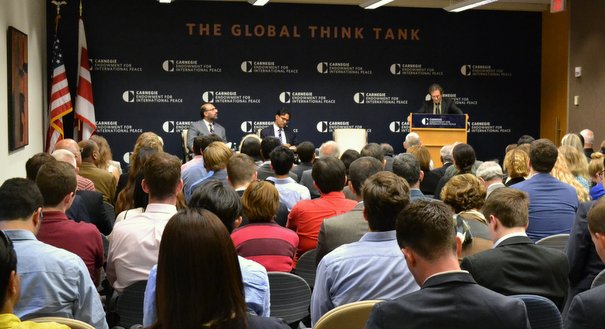Registration
You will receive an email confirming your registration.
Nearly seven decades after the Partition of the Indian subcontinent, Pakistan faces a daunting series of existential challenges ranging from ethnic strife to Islamism and terrorism. But to what extent do the resilience of the Pakistani populace, the resolve of the judiciary, and hints of reform in the army portend a new and more stable chapter in the country’s history?
A new book by Christophe Jaffrelot, The Pakistan Paradox: Instability and Resilience, grapples with this question by reexamining the central tensions that have characterized Pakistan’s post-Independence society: linguistic and cultural diversity, the role of Islam, and the balance of power between civilian democracy and military rule. Jaffrelot discussed his book, described by Stephen P. Cohen in India Today as “a superb guide to the cultural and social roots of the Pakistan movement as well as of contemporary Pakistan.” Hassan Abbas, author of The Taliban Revival, served as discussant, and Carnegie’s Milan Vaishnav moderated.
Christophe Jaffrelot
Christophe Jaffrelot is a nonresident associate at the Carnegie Endowment for International Peace, senior research fellow at the Centre d’Etudes et de Recherches Internationales (CERI) at Sciences Po (Paris), and research director at the Centre National de la Recherche Scientifique (CNRS). He is also Professor of Indian Politics and Sociology at the King’s India Institute (London), and a global scholar at Princeton University.
Hassan Abbas
Hassan Abbas is professor and chair of the Department of Regional and Analytical Studies at National Defense University’s College of International Security Affairs in Washington, DC. He is also a senior adviser at the Asia Society.
Milan Vaishnav
Milan Vaishnav is an associate in the South Asia Program at the Carnegie Endowment for International Peace, where he works on the political economy of India.
